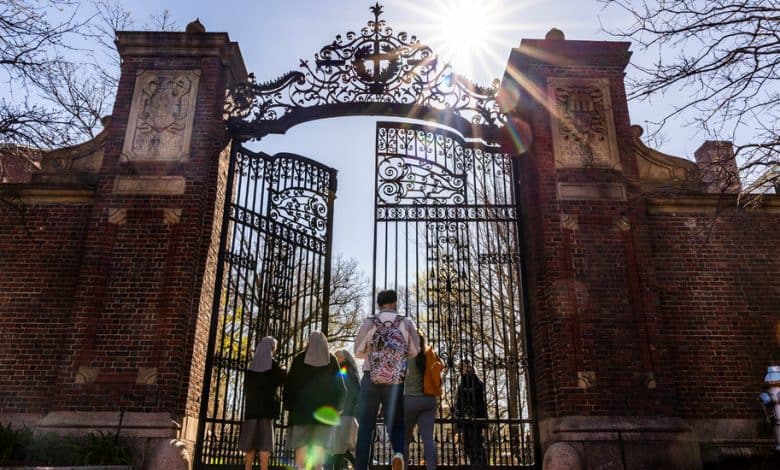Harvard Braces for Graduation Protests, a Fitting End to a Stormy Year

Harvard is bracing for protests during its commencement Thursday, after one of the most turbulent years in the university’s history.
Disruptions were made more likely after the Harvard Corporation, the governing board, barred for now the graduation of 13 students because of their role in pro-Palestinian protests on campus. The students, and many faculty supporters, believed they had come to an agreement with the administration that ended their encampment, and that all but guaranteed the lifting of disciplinary proceedings. The university denied that it was promising the outcome of disciplinary proceedings.
The controversy caps a year in which Harvard became central to a national debate over how universities have handled student protests over the Israel-Hamas war.
The turmoil began on Oct. 7, as more than 30 student organizations signed onto an open letter holding Israel responsible for the violence of the Hamas attacks in Israel, in which more than 1,200 people were killed and some 250 kidnapped.
The backlash against the letter, and Harvard’s slow response to denounce the attacks as terrorism, led to strife on campus. Pro-Palestinian students were doxxed, their names and faces circulated on trucks around campus; Jewish students were attacked with antisemitic slurs on social media; and wealthy donors pulled their money.
By January, Harvard’s first Black president, Claudine Gay, was forced to resign, after mounting charges of plagiarism in her academic work and her disastrous testimony before a congressional committee, in which she failed to denounce calls for the genocide of Jews as violating Harvard’s code of conduct.
